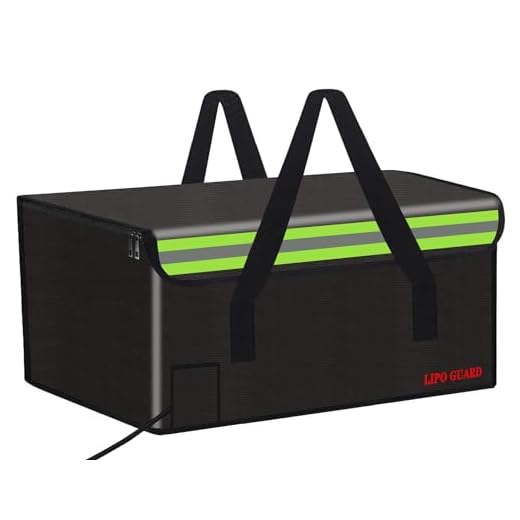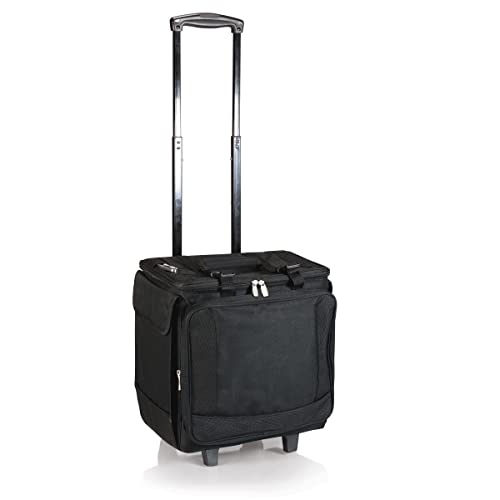



Yes, batteries are permitted in cabin bags but with specific restrictions. Lithium-ion batteries, commonly found in personal electronics, should typically be under 100 watt-hours. Batteries exceeding this power must be checked with the airline for permission prior to travel.
It is recommended to store spare batteries in their original packaging or protective cases to prevent short-circuiting. For lithium-ion cells, especially those above 100 watt-hours, pre-approval from the airline is mandatory; exceeding 300 watt-hours is generally prohibited altogether.
Plastic bags or pouches can enhance safety, while devices containing batteries are usually allowed in the cabin without restrictions. Ensure that all equipment is powered off to mitigate any accidental activation during transit.
Types of Batteries Allowed in Hand Luggage
Lithium-ion cells with a maximum capacity of 100 watt-hours (Wh) are permitted for personal devices like smartphones and laptops. For batteries between 100 Wh and 160 Wh, prior approval from the airline is necessary. Devices such as professional audio equipment or additional camera gear may contain such cells.
Lithium metal batteries with a maximum lithium content of 2 grams are also acceptable. These are commonly found in cameras and some handheld devices. Always verify specific limits with the airline, as certain models may have different regulations.
Sealed lead-acid batteries generally are prohibited. However, some exceptions exist for small batteries used in personal scooters or wheelchairs, but these often require specific documentation and packaging.
For rechargeable batteries, the same rules apply. Ensure packaging prevents short-circuiting and securely stores any spare cells and batteries alongside personal items.
In summary, ensure compliance with airline regulations regarding battery types and specifications. Keep essential documentation readily available to facilitate a smoother boarding process.
Airline-Specific Regulations for Batteries
Check individual airline policies regarding the transportation of power sources, as guidelines can differ significantly. Major carriers often restrict the watt-hour (Wh) rating for lithium-ion types, typically limiting them to 100 Wh without requiring special approval.
Major Airlines Overview
Delta Air Lines allows lithium-ion packs up to 100 Wh in carry-on. For those exceeding this capacity, prior approval is necessary. American Airlines follows a similar path with a 300 Wh maximum for checked options, while low-power units are generally fine in the cabin.
International Carriers
British Airways permits small lithium units under 100 Wh. Air France also aligns with this, ensuring items within specified limits can be transported easily. Always verify specific guidelines before traveling to avoid issues at security checkpoints.
Limitations on Battery Capacity and Quantity
For travelers, restrictions concerning capacity and quantity apply strictly. Lithium-ion cells with a capacity over 100 watt-hours (Wh) are prohibited in carry-on bags. A maximum of two spare batteries, each between 100 Wh and 160 Wh, is permitted. Batteries below 100 Wh generally face no quantity restrictions, though airlines may impose their own limits.
Capacity Specification
Verify each battery’s specifications. Check for the watt-hour rating labeled on batteries to ensure compliance. If the rating is missing, multiply the voltage (V) by the amp-hour (Ah) to calculate watt-hours: Wh = V × Ah. Avoid surprises by confirming capacity before packing.
Quantity Restrictions
Pack spare cells smartly; limits on quantity exist particularly for Lithium-ion types. While most regulations allow for significant numbers of smaller batteries, consult specific airline policies for clarity. Adhering to quantity recommendations will help avoid last-minute issues. For beach outings, the best affordable beach umbrella is a must, ensuring safety from sunlight while enjoying your gadgets responsibly.
In exceptional scenarios, sensitivity to battery placement can aid in efficiency. As an extra preventive measure, consider choosing devices with lower battery ratings. Additionally, if looking for shelter, the best umbrellas wind resis can protect personal items during outdoor events.
Safety Tips for Carrying Batteries
Always ensure battery terminals are protected from short-circuiting. Use insulating tape or place each battery in separate plastic bags to avoid accidental contact with metal objects.
Selection of Suitable Containers
Use cushioned cases for transport, preventing damage and minimizing risks associated with impacts. Choose cases specifically designed to accommodate various battery types.
Monitoring Battery Health
Inspect batteries for signs of damage such as swelling, leaks, or corrosion. Discard any compromised batteries to avoid potential hazards during transit.
- Charge batteries to no more than 30% to reduce the risk of overheating.
- Keep batteries away from extreme temperatures and direct sunlight during transportation.
- Familiarize with emergency procedures for dealing with battery incidents before traveling.
Stay informed about the latest guidelines from airlines and regulatory agencies regarding battery transport to ensure compliance and safety on every journey.
What to Do if Your Battery is Not Allowed
If an energy cell is prohibited, dispose of it safely at designated recycling centers or hazardous waste facilities. Many airports have special locations for discarded electronics. Verify local regulations prior to your trip.
Alternative Options
Consider purchasing suitable replacements after reaching your destination. Research nearby stores or online options available locally. Another approach is to transport your device without the restricted power source and use an alternative charging method, such as USB ports available on public transportation or in hotels.
Keeping Informed
Stay updated on changing regulations by visiting airline websites or the official transportation authority pages. Familiarize yourself with different country’s laws regarding portable energy sources to avoid potential fines or confiscations. For additional cleaning tips on related items, refer to resources like how to clean a mattress with cat urine.







